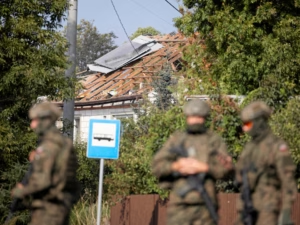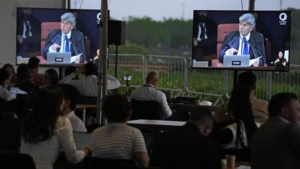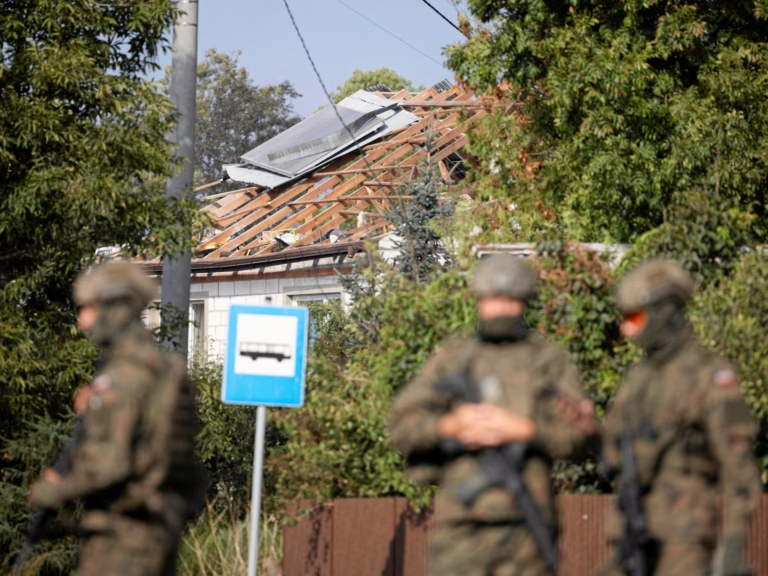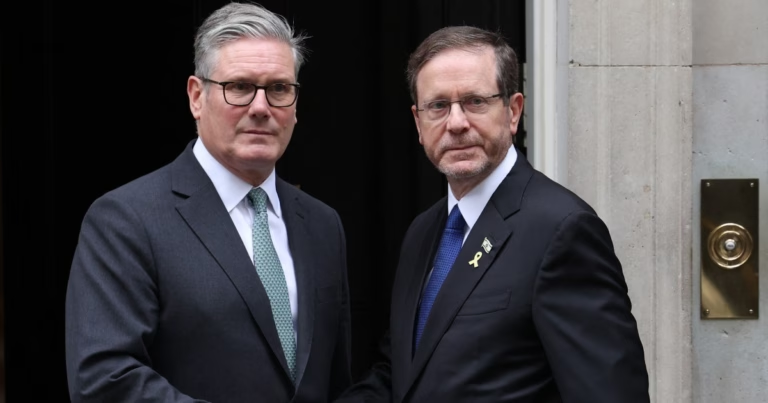UK, France, and Germany urge Israel to uphold ceasefire terms, cautioning that a blockade on aid shipments could breach international humanitarian law.
In their declaration released on Wednesday, the foreign ministers of the United Kingdom, France, and Germany implored the Israeli government to honor its international commitments and “to ensure full, prompt, safe, and unhindered delivery of humanitarian aid” to the people in Gaza.
Following the expiration of the initial phase of the ceasefire agreement with Hamas, Israel restricted the entry of aid into Gaza on Sunday. This action has raised concerns about food scarcity and further hardships during Ramadan, which commenced over the weekend.
The ministers warned, “A cessation of goods and supplies entering Gaza, such as that declared by the Government of Israel, could be in contravention of International Humanitarian Law.”

“Humanitarian aid should not be conditional upon a ceasefire or employed as a political instrument,” the statement emphasized, urging all parties to maintain the ceasefire.
In a separate move on Wednesday, five European members of the United Nations Security Council, including the UK and France, urged Israel “to allow humanitarian aid to flow into the Gaza Strip promptly,” and called on all parties “to progress to the subsequent phases of the ceasefire agreement and hostage release deal.”
Rights organizations have accused Israel of committing crimes against humanity and breaching international laws for obstructing aid delivery in Gaza. After 15 months of continuous Israeli airstrikes, nearly 50,000 Palestinians have been killed, and 70 percent of Gaza’s infrastructure is damaged.
Hamas has accused Israel of reneging on the agreed-upon ceasefire that concluded the Gaza conflict. Israel now seeks to extend the initial phase of the agreement by 50 days instead of transitioning to the second phase as previously agreed. Steve Witkoff, former U.S. Middle East envoy, is reportedly set to visit the region in the coming days to address the impasse.
Critical need for aid
Wednesday, the World Food Programme (WFP) stated it only has enough food supplies to sustain public kitchens and bakeries in the Palestinian enclave for under two weeks.
Al Jazeera’s Hani Mahmoud, reporting from Gaza, indicated the blockade is causing significant negative impacts across the region.
“Hunger is widespread here… and the markets are rapidly being depleted,” he stated.
“Many essential items that were once accessible, such as flour, medicine, and other basics, are now either costly or unavailable.”
Rosalia Bollen, a World Food Programme spokesperson, emphasized that the blockade on humanitarian aid, including vaccines and ventilators for premature infants, “will have dire consequences” for children and their families.
“If we cannot supply these essential items, routine vaccinations will cease, and neonatal units will be unable to care for premature infants. This is a grave consequence we will soon face if aid supplies are not restored,” she warned.
Bollen, present in Gaza, stated that existing supplies have been mostly distributed throughout the territory.
“The first phase of the ceasefire wasn’t just a lull in hostilities… it was a lifeline for the families here,” she added. “The situation here is very bleak; families I speak to are deeply distressed about the future.”








